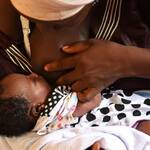Pregnancy and childbirth are a gift from God and even when pregnancy is unplanned, they are often wanted.
Frequent and recurrent pregnancy losses have broken homes.
In-laws are at loggerheads with each other due to pregnancy losses often in African settings because blacks place a high premium on childbirth.
Even when we can’t take care of the children due to financial issues, we still want pregnancy and childbirth.
Many women spend time at prayer camps because of recurrent pregnancy losses. Many are seeing diviners due to the same reason.
Many times, women are hesitant to discuss spontaneous pregnancy losses or miscarriages.
While a single pregnancy loss may not call for a trip to the doctor, two or more ought to trigger a full assessment for reproductive problems.
Frequent pregnancy losses are sometimes thought of as a way ancestors and deities met out punishment for wrongdoings. Let’s see what science has to say about today’s topic
The causes of recurrent pregnancy loss have been identified thanks to significant developments in obstetrics and gynecology (reproductive medicine).
A woman might not have known the cause of her consecutive pregnancy losses in the past, but in roughly 60% of cases, an exact diagnosis is now achievable.
A 15-year-old couple in an attempt to get a child had seen a lot of people who claim they are capable of helping with childbirth.
Their next stop was the consulting room for the umpteenth time.
They had had eight pregnancies which didn’t amount to childbirth.
Due to these happenings, the woman was called all sorts of names including a witch, eater of children, barren, good for nothing etc.
The husband had been influenced by his mother to divorce the lady or get a second wife.
He didn’t badge to the advice so had a sore relationship with his mother.
The mother says the lady has bewitched him.
There are many reasons which are categorized under headings like hormonal imbalances, structural abnormalities, immunological factors, and genetic factors.
It is an established fact that more than 15 % of miscarriages don’t have an identifiable cause.
The remaining 85% is largely caused by genetic abnormalities medical named aneuploidy.
Today, our topic will border on recurrent/frequent unexplained pregnancy losses. According to Medscape, it affects 10 to 15% of couples.
Genetic abnormalities
Aneuploidy (chromosomal aberrations) is thought to be a mechanism nature spontaneously aborts children forming with a lot of deformities.
You don’t want to have children with a lot of abnormalities. So think of this mechanism as a way nature discards what is not fit for nature like no lungs, no nose, no heart etc due to this aneuploidy.
These are related more to women in their advanced ages of 35 years and above trying to give birth.
Pre-implantation genetic studies medically termed karyotype can be used to investigate some of these abnormalities.
This is what is done in artificial insemination (eg IVF) to ensure that embryos formed are viable and compatible with nature.
When embryos formed by IVF are found not to be viable it is discarded to forestall pregnancy loss associated with these genetic aberrations.
Problems of the womb
Structural issues may be from birth or may arise later in life like fibroids and uterine polyps (growth protruding into the inner lying of the womb).
Fibroid depending on the position can inhibit pregnancy.
This is not to say that being diagnosed with fibroid means frequent pregnancy losses- not at all.
People have huge fibroids but still, give birth. So fibroids may cause frequent pregnancy losses depending on the position, number, and hormonal imbalances that may be associated with them.
Problems with the womb which are from birth are malformations called Mullerian malformations.
These dysmorphologies are present even when the female is yet to be born.
What you can do is that don’t worry if you have ever had lost pregnancies in the past.
Don’t turn a blind eye to any pregnancy lost. See the gynecologist to investigate what possibly may be the cause.
Hormonal imbalances
In menstruation, pregnancy, and reproductive health, hormones are the ‘legal tender’.
No hormones, no menstruation, and pregnancy. Sometimes, a growing fetus (baby) can abort unprovoked due to the withdrawal of some of these hormones.
Hormones are chemical released to drive an effect in this instance, pregnancy.
You may never know why you may have lost pregnancies in the past so see the gynecologist if you have fertility wishes or frequent pregnancy lost.
Catch me next time as we continue with other causes of frequent and recurrent pregnancy losses.
By Dr Michael Baah Biney




